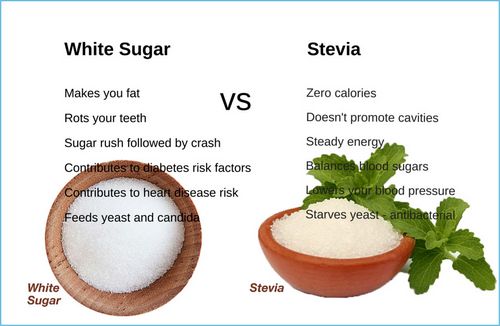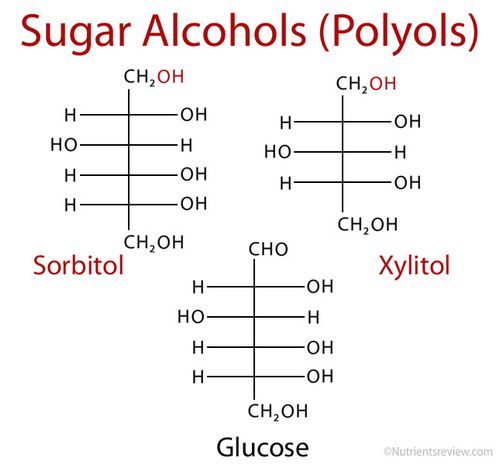
Although many marketers claim that their product is “the best sugar substitute,” there are certain products which are not a good fit for the ketogenic diet. In this article, we are going to take a look at some of the most commonly overlooked and over hyped sugar substitutes that you should know about.
Before we look at the best sugar alcohol vs sugar, it is important to understand why low-calorie sugar alternatives (i.e. Splenda, Equal, or honey) are not a good fit for the ketogenic diet. Despite the ad hype, not all low-calorie sugars are equal.
The most common sugar substitute is artificial sweeteners. As we have discussed previously, these products tend to have a diuretic effect, which means they are a temporary way to replace sugars, but are not a long term solution. Some of them cause gastrointestinal upset, diarrhea, nausea, bloating, gas, and in rare cases, even seizures. Even if you do eat too much with them, it will not affect the blood sugar very much and instead they will negatively affect your diet if you consume too much.
Another common sugar alcohol, stevia, is also diuretic. It has been linked to seizures, vomiting, heart palpitations, anxiety, muscle weakness, and drowsiness. It can also interfere with insulin and be dangerous if taken in large amounts.
Sucralose, Splenda, and other artificial sweeteners should also be avoided on the ketogenic diet. These products are not digested by the body. They are processed in the liver, which is not a good place to store them. If you consume large amounts of these products, it is unlikely that they will affect the blood sugar at all. They also tend to disrupt the glycemic index, which means that the carbohydrates in the foods you eat don’t spike in your bloodstream so quickly.
Another sugar alcohol that many people find appealing is maple syrup. Unfortunately, many people will consume more than the recommended amount and end up consuming the equivalent of two bottles of wine each day on the ketogenic diet. This may sound like a lot, but if you are not careful, you could end up with extremely high blood sugar levels, which can cause harm to the brain, kidney and pancreas.
Because the most popular and expensive type of sugar alternative tends to disrupt the GI of the food you are eating, it is difficult to judge how much you are actually consuming without using any type of sugar measurement system. Many people will consume up to three cups of this type of sugar each day, although the amounts are difficult to measure without an equation, which only works on grams per serving.
Sugar alcohol vs sugar products do have benefits for some people, such as helping those who cannot or don’t want to consume alcohol because of health issues. However, the best sugar alternative is usually something a little different.
For example, when you are consuming a high fiber content diet, you are probably consuming more fiber than you would if you ate sugar.

That makes it easier for your body to break down your food. Your intestines are able to process the food you consume much more easily, leaving you with more energy and less cravings. Even though you may consume less sugar overall, your body will need a little sugar in order to process your food properly.
If you add fruit to your diet, you will also reduce your consumption of sugar. Fruits have a natural fiber that reduces the amount of sugar you consume, as well as many other beneficial nutrients. They are rich in antioxidants that help protect your body from disease. and keep you healthy.
In addition, sugar substitutes do have other advantages, such as being less processed than alcohol. This makes it easier for your body to process the food you consume, giving you the full effect of the food you eat without all of the unwanted additives and empty calories. However, some people find that their bodies quickly adjust to the lack of alcohol and that they can get the same amount of energy with the use of the sugar substitute that they get from wine, tea, or other beverages.
So, what should you choose between sugar and alcohol? Choose sugar for its positive health benefits, not its negative ones.
About the author